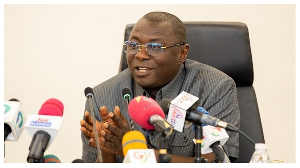More than 207,100 civil servants will in the year starting July take a pay cut as they start contributing to their pension savings kitty.
The employees attached to ministries and State agencies will see a 7.5 percent portion of their salaries sliced for onward remittance to the soon to be created Public Service Superannuation Scheme (PSSS).
The move follows Thursday’s directive by Finance secretary Ukur Yatani that PSSS be rolled out in the new financial year that starts on July 1.
Mr Yatani said the move was aimed at reducing the pension burden currently borne in whole by the exchequer, especially during the COVID-19 era that has depleted revenue sources.
Public servants do not contribute to their retirement upkeep, a move that will increase taxpayers’ pension burden to Sh109 billion in the year starting July from Sh15 billion in 2002.
In his national budget speech, Mr Yatani said, “to ease the pension burden on the exchequer, the national Treasury is committed to rolling out the Public Service Superannuation Scheme in the FY 2020/21.”
Pension budget has increased
The pension budget has increased by more than three-fold in the last 10 years from Sh25 billion in 2008/09 to Sh86 billion in 2018/19 financial year.
The Treasury forecasts it will need Sh109 billion in the year starting next July for pension payouts, rising to Sh153 billion in the year ended June 2022, reflecting a 20 percent rise.
Mr. Yatani’s move effectively activates commencement of the PSSS Act 2012 Act that was assented to on May 9, 2012 but was yet to be effected.
“Every member shall contribute to the PSSS at the rate of 7.5 percent, which is deducted from his or her monthly pensionable salary while the government makes a contribution for each member at the rate of at least 15 percent of the member’s monthly pensionable salary,” explained the Treasury.
Past bids to slice a portion of the take-home pay for civil servants has been vigorously contested in the past leading to delayed implementation of PSSS.
A 2009 actuarial study commissioned by the government found that there was a contingent pension liability of Sh499 billion at the time.
The liability nearly doubled to Sh990 billion in 2014.
Africa Business News of Friday, 12 June 2020
Source: nairobinews.nation.co.ke

















